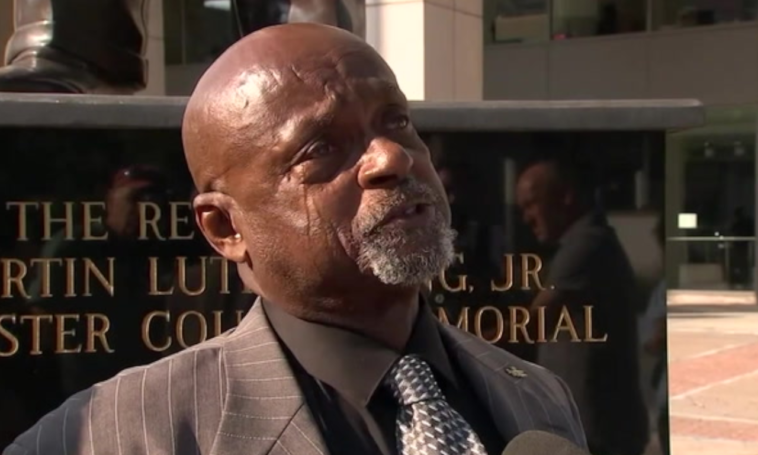In what is claimed to be the longest-standing wrongful conviction in US history, a Black man’s rape sentence was overturned almost five decades later.
Leonard Mack, now 72, was legally exonerated on Tuesday after being convicted in March 1976 of rape and two counts of unlawful possession of a firearm.
Mr Mack has been certified innocent of the crime due to fresh DNA evidence presented by the Innocence Project in partnership with the Westchester County District Attorney’s Conviction Review Unit.

As part of a post-conviction inquiry, the non-profit and the government agency did fresh DNA testing on evidence from the murder scene.
This testing proved that Mr Mack did not commit the crime for which he was unfairly condemned. “Mr Mack’s wrongful conviction is the longest to be overturned based on new DNA evidence known to the Innocence Project,” according to an item on the non-profit’s website.
“Now that the truth has been revealed, I can finally breathe.” “I’m finally free,”
Mr Mack said.
The evidence’s DNA profile was put into the state and local DNA databases, resulting in a positive match. According to reports, the genuine attacker, found via this database search, admitted to perpetrating the assault in New York.

“This exoneration confirms that wrongful convictions not only harm those who have been wrongfully convicted, but also make us all less safe,” Westchester County district attorney Miriam E Rocah said in a statement.
“Today, undeniable DNA evidence proves Leonard Mack’s innocence.” “He finally has some measure of justice nearly five decades later,” said Mary-Kathryn Smith, one of Mr. Mack’s Innocence Project lawyers.
“It is because of Mr Mack’s resilience and strength that this day has finally arrived.”
Mr Mack was imprisoned for seven and a half years.
“Today has been a long time coming,” he was reported by the Innocence Project as saying.
“I was imprisoned for seven and a half years for a crime I did not commit.” I’ve had this injustice hanging over my head for over 50 years.”
Mr. Mack has been married to his wife for 21 years and is a Vietnam War veteran.
On May 22, 1975, police stopped Mr. Mack in Greenburgh, New York, about two and a half hours after an incident where two adolescent girls were harassed as they went home from school.
One of the kids was raped during the assault, while the other managed to flee and seek aid at a neighboring school, where a teacher immediately called the authorities.
The incident occurred in a predominately white neighborhood, and the Greenburgh police department provided a suspect description that included a Black guy in his early twenties.
Mr Mack was captured and transported to a police station for interrogation despite having a distinct look from the suspect when driving through the neighborhood at the time, including different attire and an alibi to establish his innocence.

According to the Innocence Project, racial prejudice played a role in the police focusing on Mr Mack because he “fit the description” of the suspect despite overwhelming evidence.
Even though just 13.6 percent of the American population is Black, they account for 53% of the 3,200 exonerations reported in the National Registry of Exonerations in its 2022 study, Race and Wrongful Convictions in the United States.
Black Americans are seven times more likely than white Americans to be wrongly convicted of severe crimes.




